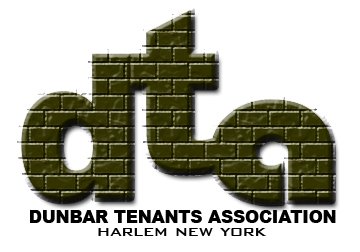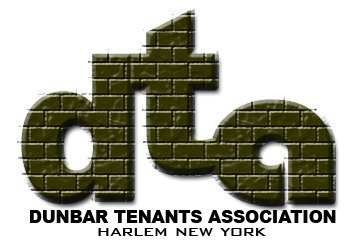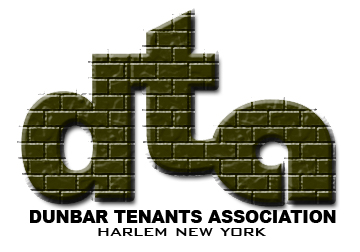Full-court press vs. poor tenants
Landlord buys rundown buildings then goes after regulated apartments
By Juan Gonzalez NY Daily News
One of New York's biggest owners of rent-stabilized apartments is quietly carrying out an aggressive campaign to chase out many of its tenants.
The Pinnacle Group LLC has filed more than 5,000 Housing Court eviction actions in the past two years, court records obtained by the Daily News show.
That's an average of one court action for every four units that the company owns in the city.
The company often buys a building in a low-income but up-and-coming neighborhood, such as Harlem, Washington Heights, the South Bronx, and Elmhurst, Queens; identifies tenants who, under the law, are vulnerable to being evicted, and begins eviction proceedings.
At Harlem's historic Dunbar Houses, a 534-unit complex that the firm took over last August, court records show that Pinnacle wasted no time. It initiated more than 250 eviction proceedings for nonpayment of rent or illegal occupancy during the first six months.
At a 300-unit complex on Morrison Ave. in the South Bronx, the company took 173 tenants to court in 254 separate actions since acquiring the buildings in August 2004.
For the entire Bronx, where Pinnacle controls more than 3,600 units, its lawyers filed nearly 2,000 dispossess actions during the past two years - an average of more than one for every two apartments.
Joel Weiner, the company's chief executive and himself a lawyer, insists the firm's tactics are completely aboveboard and legal.
"We only go to court when a tenant owes more than two months rent," Weiner said.
Weiner acknowledged that he strictly enforces company policy that only the tenant-of-record on a lease can pay rent and occupy a Pinnacle apartment - going after those whom the company asserts are violating the policy.
But neighborhood leaders say too many of Weiner's legal actions are based on flimsy or dubious claims. They say Pinnacle is using the courts and the law to harass and intimidate long-term tenants.
"Their philosophy is, if I drag you into court enough, I'm going to wear you out," said a major Bronx landlord familiar with Pinnacle's efforts.
"At least once a week, I get a call from someone in a Pinnacle building looking for another apartment," said the landlord, who asked not to be identified.
It is unclear how many Pinnacle tenants were formally evicted or simply moved out once an eviction notice was filed. The company refused to provide any eviction data.
The News examined a sample of 85 eviction cases involving the Dunbar Houses in Harlem. More than a third resulted in a judge's warrant for Pinnacle to evict the tenant or take possession of the apartment.
Once an apartment becomes vacant, Pinnacle typically renovates the unit, then sharply increases the rent - often to double or triple the previous rate - housing advocates say.
"It's called working the building," said Evan Hess of the nonprofit Northern Manhattan Improvement Corp. "Landlords these days want to get rid of as many low-income tenants as possible."
Changes to rent laws that Albany lawmakers passed in 2003 make it easier for city landlords to hike prices after fixing up vacant apartments, Hess said.
On Riverside Drive in West Harlem, where Pinnacle owns more than a dozen buildings, Weiner is planning several condo conversions and is proposing to sell units for up to $1 million each.
"They have become the leading force for gentrification in northern Manhattan," says Assemblyman Adriano Espaillat (D-Washington Heights). "My office is being overwhelmed by complaints from families being crushed by this company."
The growing threat of displacement has sparked a huge backlash from hundreds of Pinnacle residents and local political leaders in a half-dozen neighborhoods.
State Assemblyman Keith Wright (D-Harlem) joined with a newly formed anti-Pinnacle group, Buyers and Renters United to Save Harlem (BRUSH), to picket the company's midtown headquarters last month. BRUSH has sponsored several neighborhood meetings in recent weeks that have drawn hundreds of irate Pinnacle tenants.
In Washington Heights, the Mirabal Sisters Cultural Center has collected signatures from more than 1,500 Spanish-speaking Pinnacle tenants demanding an investigation of the company.
Esther Martin and Juan Silva are two of those tenants.
Martin, 82, has lived in the same rent-controlled apartment at 610 Riverside Drive since 1951. Three years ago, Pinnacle sued to evict her. The company claimed she was illegally subletting while living in Florida.
"She has a daughter in Florida and visits there a couple of times a year, but she's always lived here in New York," said Silva, 66, the woman's nephew, who lives with his widowed aunt in the dilapidated three-bedroom apartment that overlooks the Hudson River.
The supposed illegal tenant Pinnacle named in its complaint, Silva said, was Martin's husband, Joseph Martin, who has been dead since 1996.
Silva accompanied his aunt to Housing Court a half-dozen times over a three-year period. In January, Pinnacle's lawyers suddenly offered them $30,000 to vacate the apartment.
"We refused the money and told them, 'Let the judge decide,'" Silva said.
Pinnacle dropped its case after getting Martin to sign an agreement not to seek succession rights for her nephew in the apartment.
Asked about Martin, company chief Weiner said: "Do I want to sue an 82-year-old lady? No. We had information she owned a condo in Florida. Anyway, now she gets to stay."
Weiner points out he spends millions of dollars to improve some of the city's worst-kept and most crime-ridden slum housing. "I love to restore old buildings," Weiner said.
During interviews with The News and a recent tour of a dozen of his northern Manhattan properties, he showed off some of those improvements. At the sprawling Dunbar Houses, for example, he has reduced the number of city housing violations from 2,000 to less than 700 since taking over last year.
Weiner, who receives major financing from The Praedium Group, a nationwide private equity fund, refuses to say how many buildings he has acquired. Many of Pinnacle's properties are held by subsidiary partnerships and operate under different names. But a review of city records shows that Weiner and the partnerships he controls own at least 440 properties with nearly 20,000 apartments.
Even his strongest critics concede Weiner usually improves common areas as soon as he buys a building. Pinnacle typically renovates public entrances, installs new intercoms, security cameras and bright outdoor floodlights, and invariably raises an American flag on all the company's properties.
But dozens of Pinnacle tenants interviewed in recent weeks say those are largely cosmetic changes to attract new tenants. They accuse Pinnacle of delaying major repairs in existing tenants' apartments for months.
"They [Pinnacle] are awful to tenants," said Assemblyman Jeff Dinowitz (D-Bronx), who successfully battled several Pinnacle court actions against senior citizens in his district. "They are quick to institute eviction proceedings ... but they never get back to us when we call."
One resident's sorry saga
City College music student Frank Montoya knows firsthand how far Pinnacle Group LLC will go to try to evict one of its rent-stabilized tenants.
In 2001, Montoya, 34, moved into a new apartment at 845 Riverside Drive near his school's campus. He roomed with a Columbia University pal who had initially leased the apartment.
When the roommate moved in 2003, Montoya secured the lease in his own name from the landlord at the time. He then got two new roommates to share the $1,300 rent.
A year later, Pinnacle purchased the six-story building.
Last summer, Montoya made his annual trip to his parents' farm in New Mexico, where he usually works a few months as a chef at a nearby assisted-living facility.
In August, Pinnacle sent a registered letter to Montoya's Manhattan address, notifying him that his lease was not being renewed because Pinnacle had evidence he was a legal resident of New Mexico.
Montoya returned to the city in the fall. He sent Pinnacle his rent checks for September and October but the company refused to accept them, even though his lease didn't expire until Nov. 30.
Pinnacle sued for eviction in Housing Court, claiming Montoya doesn't live in New York and is illegally subletting the unit.
"I've been in this city for eight years," Montoya said from his apartment, its walls adorned with his original artwork.
"My driver's license is from New York and I'm registered to vote here. I still need one more course to get my degree," he said. "What more proof do they need?"
Montoya has been to court several times with his documents but the case keeps getting postponed. Pinnacle's lawyers recently filed a discovery motion demanding copies of his income tax returns and the chance to depose him and his two roommates.
The next court date is at the end of the month. Like most tenants Pinnacle sues, Montoya can't afford to pay for a private attorney.
"How can this company just make up a story like this and keep dragging me through court for months?" he said.
Originally published on May 7, 2006
http://www.nydailynews.com/front/story/415628p-351129c.html
Tuesday, May 09, 2006
Subscribe to:
Post Comments (Atom)



No comments:
Post a Comment